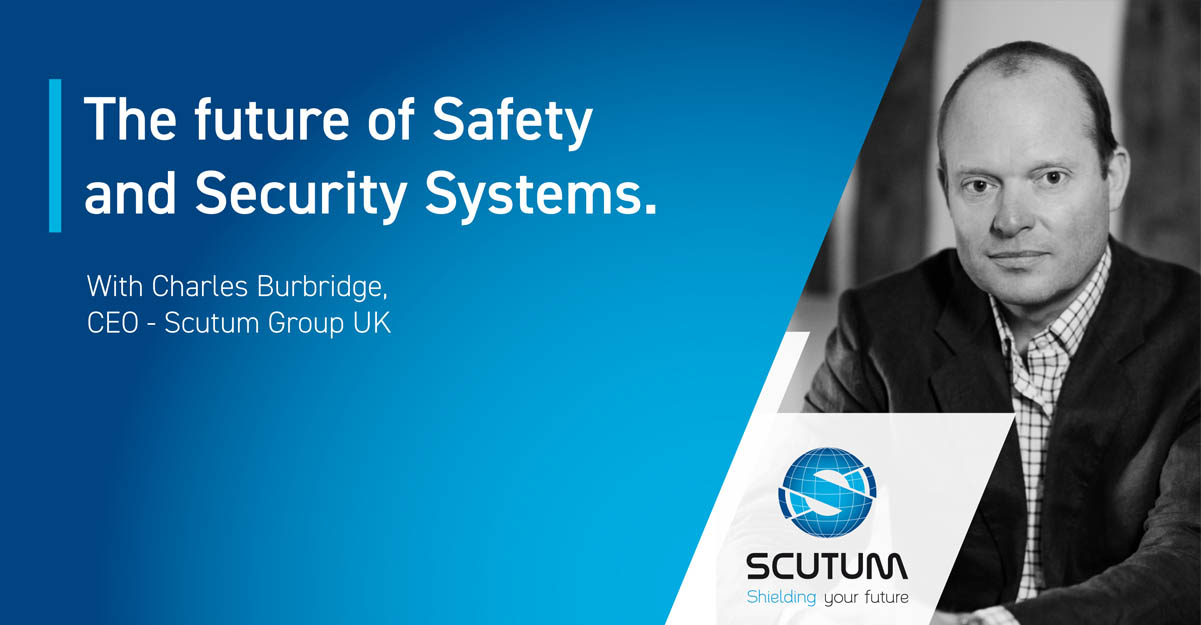
The Future of Safety and Security Systems: A Conversation with Charles Burbridge, CEO of Scutum Group UK
As technology continues to advance at an unprecedented pace, the future of safety and security systems is becoming increasingly intriguing. To gain insights into this rapidly evolving landscape, we had the privilege of speaking with Charles Burbridge, the CEO of Scutum Group UK. Charles shared his thoughts on the future of these systems and the technologies that are poised to shape the industry in the coming years.
Embracing Friction-Free Movement:
Charles believes that the future of security systems lies in enabling friction-free movement of people. This involves striking a delicate balance between maintaining freedom of movement and ensuring safety in public spaces and workplaces. Technologies like facial recognition are expected to play a significant role in achieving this balance. Implementing such technologies in private spaces is likely to be less contentious, leading to improved efficiency and better workspace experiences.
However, a key challenge to overcome is building trust in data management. Charles stressed the importance of adopting robust data management practices, including data destruction when it is no longer required, to ensure the integrity and privacy of individuals. Scutum Group UK aims to lead in this regard, calling it
“Intelligence With Integrity.”
Leveraging Artificial Intelligence and Data Science:
Artificial intelligence (AI) and data science have immense potential to enhance safety and security systems. While Charles firmly believes that AI can never replace intuition and experience, it can be a valuable tool in validating assumptions and predictions. Leveraging data analysis, these technologies can help predict potential fire outbreaks and enable timely responses with suppression or containment measures.
“Enhancements in data analysis will enable us to predict where fires are likely to ignite and provide us with the time to react and deploy suppression or containment assets in a timely manner. One application for this might be in the effective and accurate prediction of where forest fires will ignite and enable assets to be flown to intervene before the fire takes hold.” Explained Charles.
Addressing Ethical Considerations:
As these advanced technologies become integral to safety and security systems, ethical considerations become paramount. Charles emphasized that people are not mere numbers; they are complex beings with emotional responses to their surroundings. It is crucial to ensure that the deployment of these technologies treats individuals with dignity and respect. Additionally, safeguarding personal freedom and preventing undue control are vital aspects that must be considered.
Cost Implications:
The increasing emphasis on predictive technology may lead to reduced reliance on traditional standby intervention systems, resulting in potential cost savings. Deployable systems, triggered by sensors or data analytics, are likely to play a more significant role in the future. This shift in approach may influence the overall cost of safety and security systems.
Enhancing User Experience:
Charles envisions a future where safety and security systems operate seamlessly and unobtrusively. Highly visible systems can impact staff well-being and productivity. The goal is to provide safety and security without individuals even realizing they are being protected. This approach will be especially critical in maintaining a sense of normalcy while ensuring enhanced safety and security.
“Systems should become less visible. Safety from environmental hazards and security from malign intent when highly visible can have a detrimental impact on staff wellbeing. I would like to see a future where people who are secured and made safe by our systems do so without ever realising that we are providing this service.” Charles expanded.
Ensuring Reliability and Security:
Technical reliability in safety and security systems is continually improving. However, building trust in data management is a critical aspect to address. The distinction between public and private data should be emphasized, with data destruction practices being conducted transparently and efficiently. This will help rebuild trust in institutions handling private data and ensure a secure environment for users.
The future of safety and security systems holds tremendous promise. Leveraging advanced technologies like AI and data science, while considering ethical implications, will shape a safer and more secure world. Scutum Group UK, under the visionary leadership of Charles Burbridge, aims to embrace these advancements with a commitment to reliability, transparency, and integrity, laying the groundwork for a safer tomorrow.
